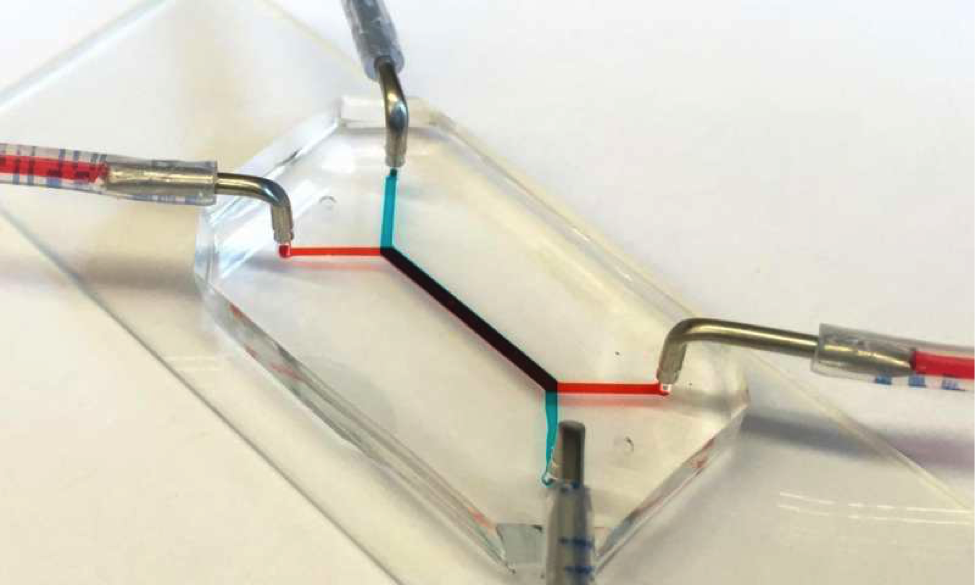Placenta-on-a-Chip for Studying Pregnancies

The placenta is one of the most complex yet least understood organs of the human body. It regulates the transport of essential nutrients between the mother and the fetus and also serves to protect the fetus from dangerous substances in the mother’s blood. Previous studies of this critical organ in animal models do not match results found in donated human placental tissue. To create a more predictive and physiologically relevant model, researchers at the University of Pennsylvania and the University of Colorado collaborated to develop a placenta-on-a-chip that is capable of simulating transport through the essential barrier between the mother and the fetus in the placenta. They were able to show that glucose transport using this chip approximates that found in donated human placental tissues. This research promises to offer new insights into preterm births, which can affect as many as one in 10 pregnancies worldwide.
References
- Blundell C, Tess ER, Schanzer AS, et al. A microphysiological model of the human placental barrier. Lab Chip. 2016;16:3065-3073. doi: 10.1039/c6lc00259e.








